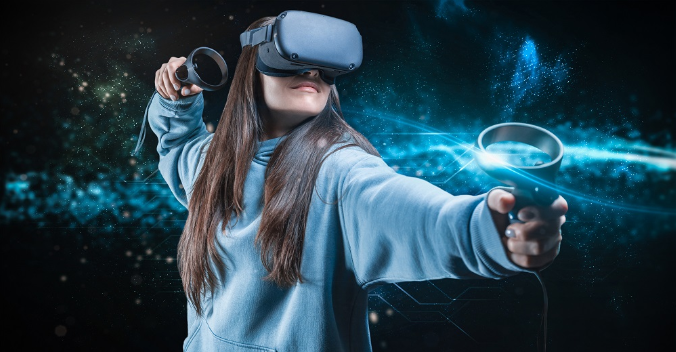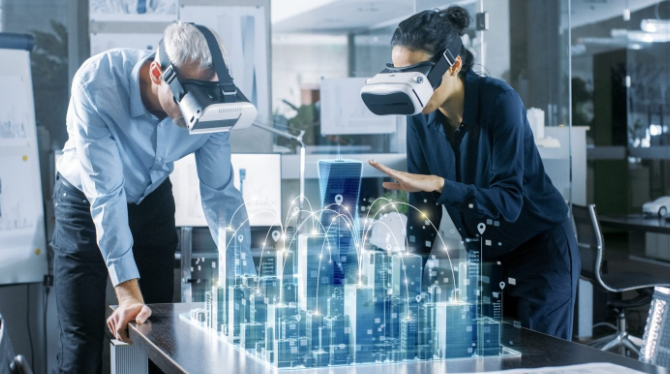The metaverse, a dynamic convergence of augmented reality (AR), virtual reality (VR), and blockchain technology, is poised to revolutionize the gaming landscape. Recent projections indicate an astounding surge in the global metaverse gaming market, set to escalate by an impressive 1085.92% from $14.2 billion in 2023 to a staggering $168.42 billion by 2030. This meteoric rise is underpinned by the transformative capabilities of AR, VR, and blockchain, ushering in a new era of immersive and interconnected gaming experiences.
Reshaping Gaming Through AR, VR, and Blockchain

AR and VR Redefining Immersion
Augmented reality and virtual reality technologies are at the forefront of the metaverse gaming revolution. These technologies enhance the gaming experience by integrating virtual elements into the real world or immersing players in entirely virtual environments (VR). The result is a level of immersion that transcends traditional gaming boundaries, offering players a more engaging and interactive experience.
Blockchain’s Role in Virtual Economies
Blockchain innovation and technology play a significant role in shaping the metaverse gaming ecosystem. By leveraging decentralized ledgers, blockchain enables the creation, ownership, and secure exchange of virtual assets. From in-game currencies to rare digital items, blockchain underpins virtual economies within the metaverse. This not only enhances the security and transparency of transactions but also introduces real-world value to virtual assets.
Unleashing Economic Opportunities

Virtual Economies Taking Center Stage
Virtual economies within these digital realms facilitate the creation, exchange, and monetization of virtual assets. The metaverse has become a thriving marketplace where users can easily trade digital goods. This includes virtual real estate, rare in-game items, and even virtual currencies, all of which hold tangible value within the metaverse ecosystem.Discover more! Metaverse Exchange Explained
Revenue Generation Beyond Gaming
The economic impact of the metaverse extends beyond gaming. As virtual assets gain real-world value, opportunities for revenue generation multiply. Virtual real estate transactions, for instance, have become a lucrative market, with users investing real money to acquire digital properties within the metaverse. Similarly, in-game currencies can be traded or converted into traditional currencies, creating avenues for financial gains.
Challenges and Opportunities Ahead
While the metaverse gaming market presents unprecedented growth, it is not without challenges. Technological hurdles, such as ensuring seamless integration of AR, VR, and blockchain, demand ongoing innovation. Interoperability and user-friendly interfaces will be critical for widespread adoption and sustained growth.
Another important thing is regulatory considerations. The evolving landscape of virtual economies and digital assets within the metaverse brings regulatory considerations to the forefront. As these markets gain prominence, policymakers and regulatory bodies will likely explore frameworks to address issues like taxation, fraud prevention, and consumer protection.
A Thriving Future for Metaverse Gaming
The projected surge of 1085.92% in the global metaverse gaming market by 2030 underscores the transformative potential of AR, VR, and blockchain technologies. Beyond offering unparalleled gaming experiences, the metaverse is becoming an economic powerhouse, opening new frontiers for virtual asset creation, exchange, and monetization. As the metaverse continues to evolve, stakeholders must navigate technological challenges and regulatory considerations to ensure a thriving and sustainable future for this dynamic intersection of gaming and digital innovation.

